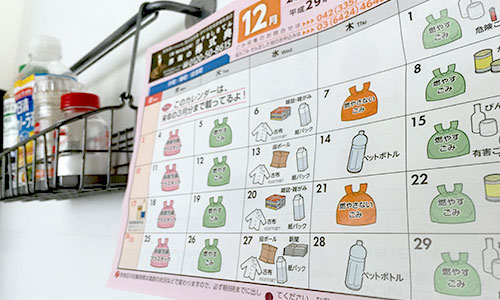
14 Nov 3 Reasons Japanese Landlords Won’t Rent to Foreigners (and What You Can Do)
Last Modified on October 8th, 2020 at 04:29 pm
Category: Application Process, Housing, Renting in Japan
If you’re a foreigner living in Japan, chances are you or someone you know has had an apartment application rejected on the basis of not being Japanese. In this article we shed light on the reasons behind this frustrating experience, and what can be done about it.
Why won’t Japanese landlords rent to foreign tenants?
First off, please know there are plenty of property owners in Tokyo and other parts of Japan who are more than happy to accept applications from non-Japanese residents. We love working with these landlords and are dedicated to seeking them out and listing their properties.
Property owners who reject applications from foreign residents tend to fall into one of two camps. First, there are the landlords who are risk-averse but not fundamentally opposed to renting to non-Japanese. Then, there are the landlords who cannot be persuaded to rent to someone from another country (or a particular country) at any cost.
Unfortunately, not much can be done about the latter and it’s best not to waste your time arguing with them. Additionally, as of writing, there are no laws in Japan prohibiting landlords from rejecting applicants based on their country of origin. It can be very disheartening to have your rental application refused on the basis of your nationality alone. Even more so for people who speak Japanese, have lived and worked in Japan for many years, and have Japanese spouses. This is why at Apts.jp, we choose to only work with foreigner-friendly property owners.
Although discrimination laws leave a lot to be desired, laws protecting the rights of tenants are very strong. Evicting someone is a real hassle, which is why owners are so risk-averse when choosing a tenant. Fortunately, in some cases, risk-averse landlords who simply have little experience interacting with people from other countries can be persuaded to rent to a foreign resident. To do this, it is important to understand their concerns and find ways to alleviate them.
Concern #1: Language
Landlords worry issues will arise from foreign tenants being unable to read, write, and speak in Japanese. This is not only in regard to communication between tenant and landlord, but also neighbors and the wider community.
What you can do:
Obviously, speaking Japanese will help you to overcome this barrier. If you’re new to Japanese and don’t have time for language school, consider hiring a private tutor to teach you basic daily conversation. Even if you’re not particularly good Japanese, simply attempting to learn the language will give a good impression. That said, some landlords don’t mind as long as there is someone on hand to assist with translation.
What we will do:
A key part of our service is providing support between landlord and tenant both before and after your move. Even if you don’t speak a word of Japanese, we’re always available to assist with communication.
If you do speak Japanese, we’ll make sure the landlord knows communication won’t be an issue.
Concern #2: Culture
Another common concern is that non-Japanese tenants will not follow the rules of Japanese society. They worry shoes will be worn inside the house and cause damage to the flooring (particularly tatami), that trash will not be sorted correctly, and neighbors with be disturbed by loud noises or partying.
What you can do:
This is difficult to address prior to moving in. However, being a good tenant will make it easier for you to renew your contract and also improve the image of foreign tenants as a whole. You can do this by following the rules of your building and local area. Most importantly, sorting your trash correctly and putting it out on the appropriate days. (Yes, sorting your trash is a really big deal here.)
Plan on entertaining a large number of guests? Consider leaving a note for your neighbors apologizing in advance for any noise, and letting them know what time people will leave. Also, introducing yourself to your neighbors when you first move in and presenting them a small gift is always appreciated. It might be their first time living next to someone from another country and a friendly introduction will put them at ease.
What we will do:
If you have already been living in Japan for some time, we can reassure the landlord that you understand how to behave as a member of Japanese society. We’ll also explain the rental agreement to you in plain English, and make sure you understand all the rules.
After you move in, we’ll run through everything you need to know about living in a Japanese apartment building. If you would like to leave a note for your neighbors or offer them a small present, we can assist with translation and gift recommendations. Of course, we’ll also teach you how to read your local trash collection calendar and show you the collection points.
Concern #3: Money and Length of Stay
Japanese people are known for their punctuality, and it isn’t unusual for them to expect people from other countries to be late. Unfortunately, this means some people believe foreign tenants will not pay their rent on time. They also fear that a foreign tenant could up and leave without paying their rent, leaving them in the lurch.
Another fairly understandable concern is that foreign tenants are less likely to stay long-term. Landlords prefer to find a good, long-term tenant than go through the rental process every couple of years.
What you can do:
The best thing you can do is be employed full-time with a salary approximately 3 times higher than the rent. (Bonus points if you have company health insurance and are a permanent employee.) Your wage and the perceived stability of your job is a deciding factor in your application. If you’re not in a hurry to move, it may be worth waiting until you get a promotion or land a job at a well-known company.
Depending on the property management, you will need to arrange a Japanese guarantor or enroll in a guarantor company. You can learn more about guarantors and the requirements in our article on 8 Things to Prepare for Your Apartment Application in Japan.
In regard to length of stay, let your agent know if you’re looking to stay in the same apartment for the foreseeable future.
What we will do:
Firstly, we’ll make sure you have the right paperwork to prove your income. If your employer isn’t well-known, we’ll research the company and build a case to strengthen your application. We can also help you choose a guarantor or complete the necessary paperwork for a guarantor company.
If you speak Japanese and have been living in Japan for a long time already, you are likely more than capable of going through a traditional Japanese agency. However, the reality is that even if you speak fluent Japanese, your application may still be unsuccessful.
We strongly believe the best tool you can have in applying for an apartment is someone on the agency-side who will advocate for you. At Apts.jp, we know that foreign tenants are just as trustworthy and reliable as Japanese tenants, and we work hard to spread this message.
If you are having difficulty applying for an apartment, please contact us and we will do our best to assist. We also have hundreds of properties listed on our site, all with landlords who are open to renting to foreign residents.
We look forward to helping you find your new home in Tokyo!

